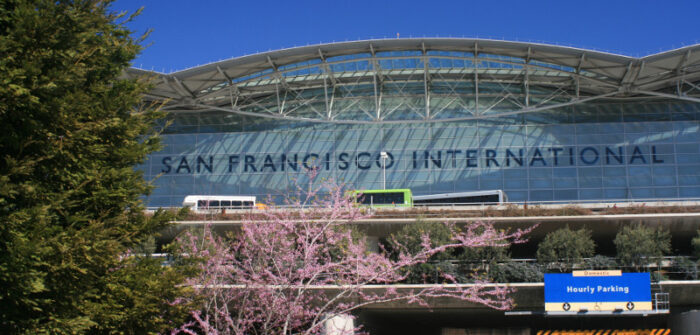Construction and development firm Skanska USA has announced the completion of San Francisco International Airport’s (SFO) AirTrain extension and improvements project.
Skanska provided progressive design-build services for the US$172m project, which launched in August 2016. The AirTrain now provides connectivity between all terminals, parking garages, the on-airport hotel, BART station, and rental car center. As transportation to the long-term parking lots was previously provided by shuttle bus, this move is expected to eliminate 600,000 miles of trips annually and extend the AirTrain guideways by 1,900ft.
Gordon Childress, executive vice president and general manager for Skanska USA Building, said, “The SFO AirTrain project has allowed one of the busiest airports in the country to reach a new level of connectivity and efficiency, all while meeting the highest standards of sustainable construction. I am incredibly proud of the Skanska designers, builders and other team members that carried this project through to such an impressive completion.”
The two AirTrain Stations completed as part of the project were recently awarded LEED Gold certifications from the US Green Building Council (USGBC).
Ivar C Satero, airport director, SFO, commented, “The completion of the AirTrain extension to long-term parking realized our vision to provide a seamless, clean energy connection between all of our terminals, parking, hotel and rental car facilities. At the same time, the project continued our tradition of industry leadership in sustainable building design, construction and operation. This LEED Gold certification is a tribute to the dedicated project team who transformed this vision into reality.”
According to Skanska, sustainable design and construction elements were prioritized at each stage of the project, resulting in the implementation of more than 50 sustainable practices. Highlights include:
- Installing a large solar photovoltaic (PV) system on the roof of the SFO Long Term Parking Garage with 2,700 PV panels that generates about 40% of the AirTrain stations’ annual power needs;
- Employing new water-efficient fittings and fixtures that reduce water use by about 40%;
- Recycling more than 75% of construction and demolition debris;
- Procuring building products and materials that comply with the rigorous LEED Volatile Organic Compound (VOC) emissions criteria to reduce concentrations of indoor chemical contaminants;
- Testing the indoor air quality at both stations to confirm compliance with LEED air quality assessment standards for clean indoor air prior to occupancy;
- Selecting building products and materials from manufacturers that transparently disclose products’ environmental lifecycle information to reduce global environmental impact.
Tolga Tutar, sustainability director for Skanska USA Building, said, “Implementation of green building standards to the design and construction of transit projects is key for creating a healthy, environmentally friendly, and resource-efficient built environment for these high-intensity facilities. Achieving LEED Gold status for the new SFO AirTrain stations is a testament to these facilities’ environmental performance, especially in terms of waste reduction, wellbeing of occupants, water- and energy-efficiency, and lower operational carbon footprint. Our Skanska team is proud to support SFO’s commitment to sustainable building practices.”

